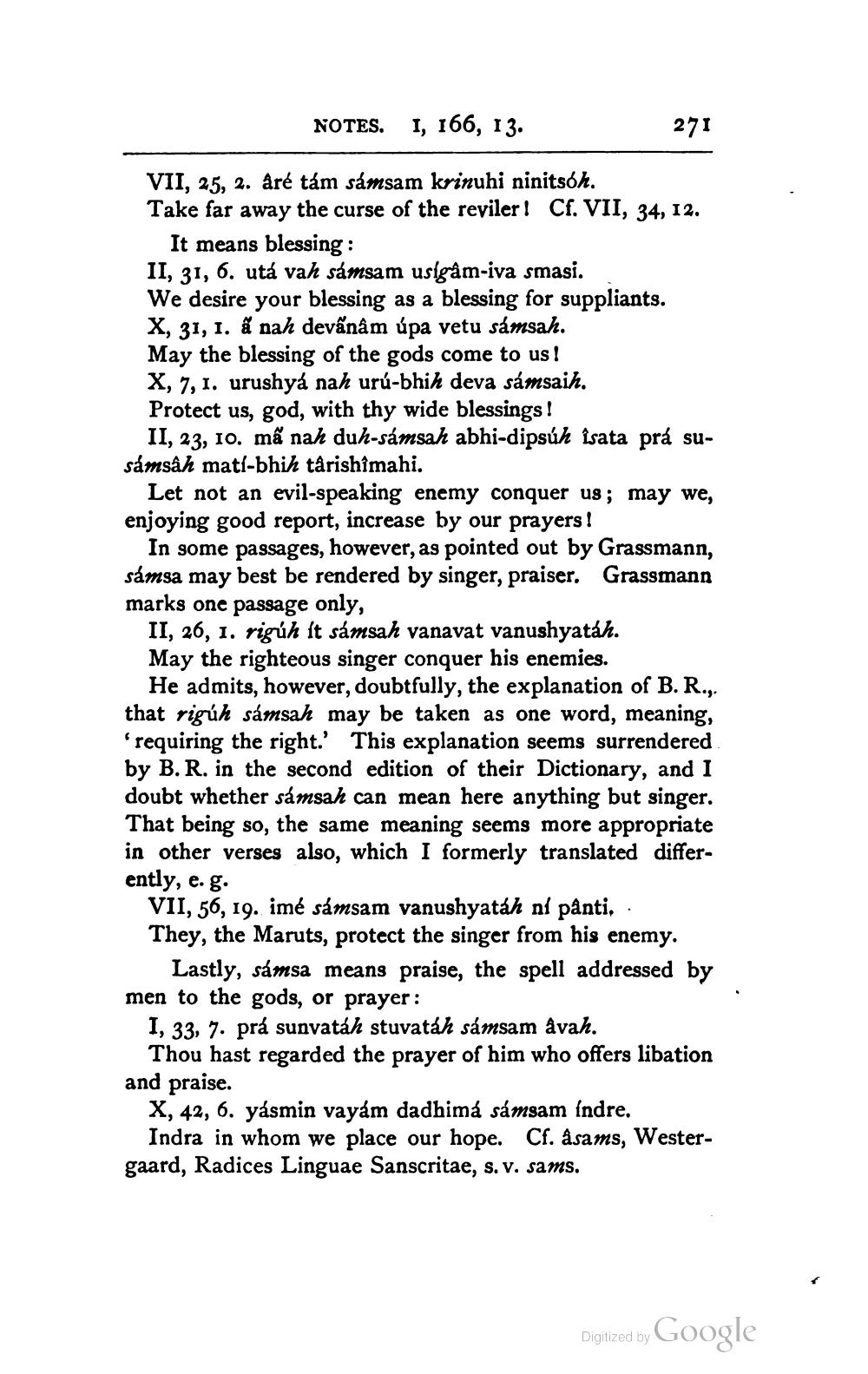________________
NOTES. I, 166, 13.
271
VII, 25, 2. aré tám sámsam krinuhi ninitsóh. Take far away the curse of the reviler! Cf. VII, 34, 12.
It means blessing: II, 31, 6. utá vah samsam usigâm-iva smasi. We desire your blessing as a blessing for suppliants. X, 31, 1. â nah devấnâm úpa vetu samsah. May the blessing of the gods come to us! X, 7,1. urushya nah urú-bhih deva sámsaih. Protect us, god, with thy wide blessings!
II, 23, 10. mã nah duh-samsah abhi-dipsúh isata prá susámsâh mati-bhih târishimahi.
Let not an evil-speaking enemy conquer us ; may we, enjoying good report, increase by our prayers !
In some passages, however, as pointed out by Grassmann, samsa may best be rendered by singer, praiser, Grassmann marks one passage only,
II, 26, 1. rigúh It sámsah vanavat vanushyatáh. May the righteous singer conquer his enemies.
He admits, however, doubtfully, the explanation of B. R... that rigúh samsah may be taken as one word, meaning, 'requiring the right.' This explanation seems surrendered by B. R. in the second edition of their Dictionary, and I doubt whether sámsah can mean here anything but singer. That being so, the same meaning seems more appropriate in other verses also, which I formerly translated differently, e.g.
VII, 56, 19. imé sámsam vanushyatáh ni pânti, They, the Maruts, protect the singer from his enemy.
Lastly, sámsa means praise, the spell addressed by men to the gods, or prayer:
1, 33, 7. prá sunvatáh stuvatáh sámsam dvah.
Thou hast regarded the prayer of him who offers libation and praise.
X, 42, 6. yasmin vayám dadhimá sámsam indre.
Indra in whom we place our hope. Cf. ásams, Westergaard, Radices Linguae Sanscritae, s. v. sams.
Digitized by
Digitized by Google




